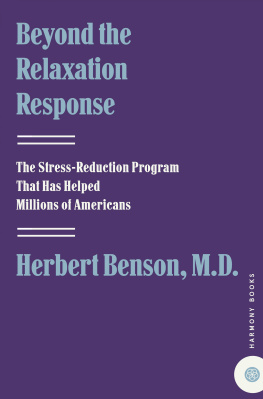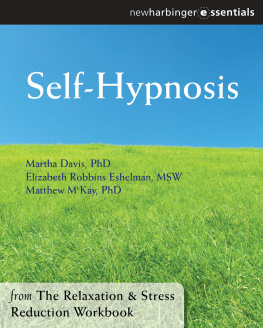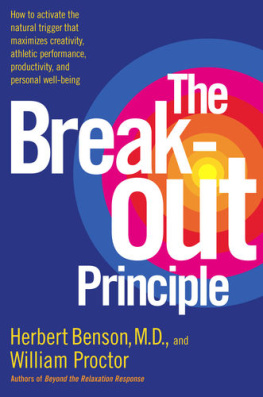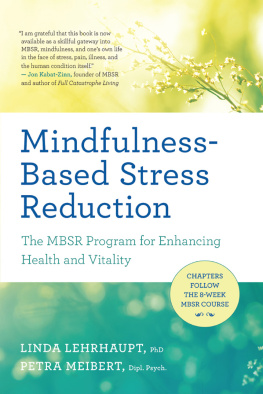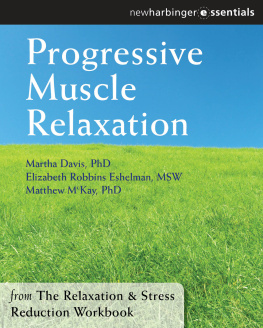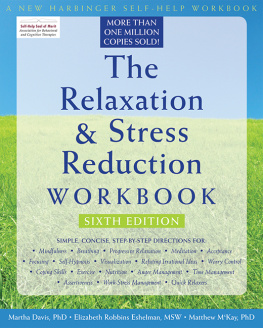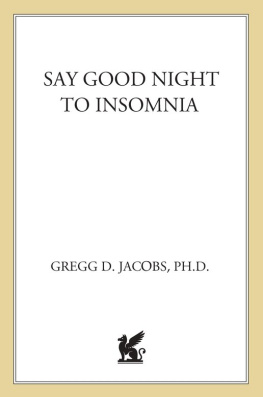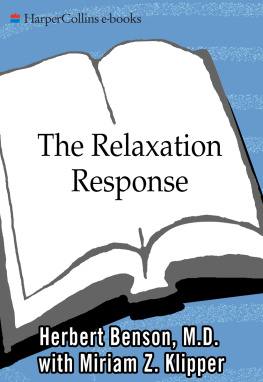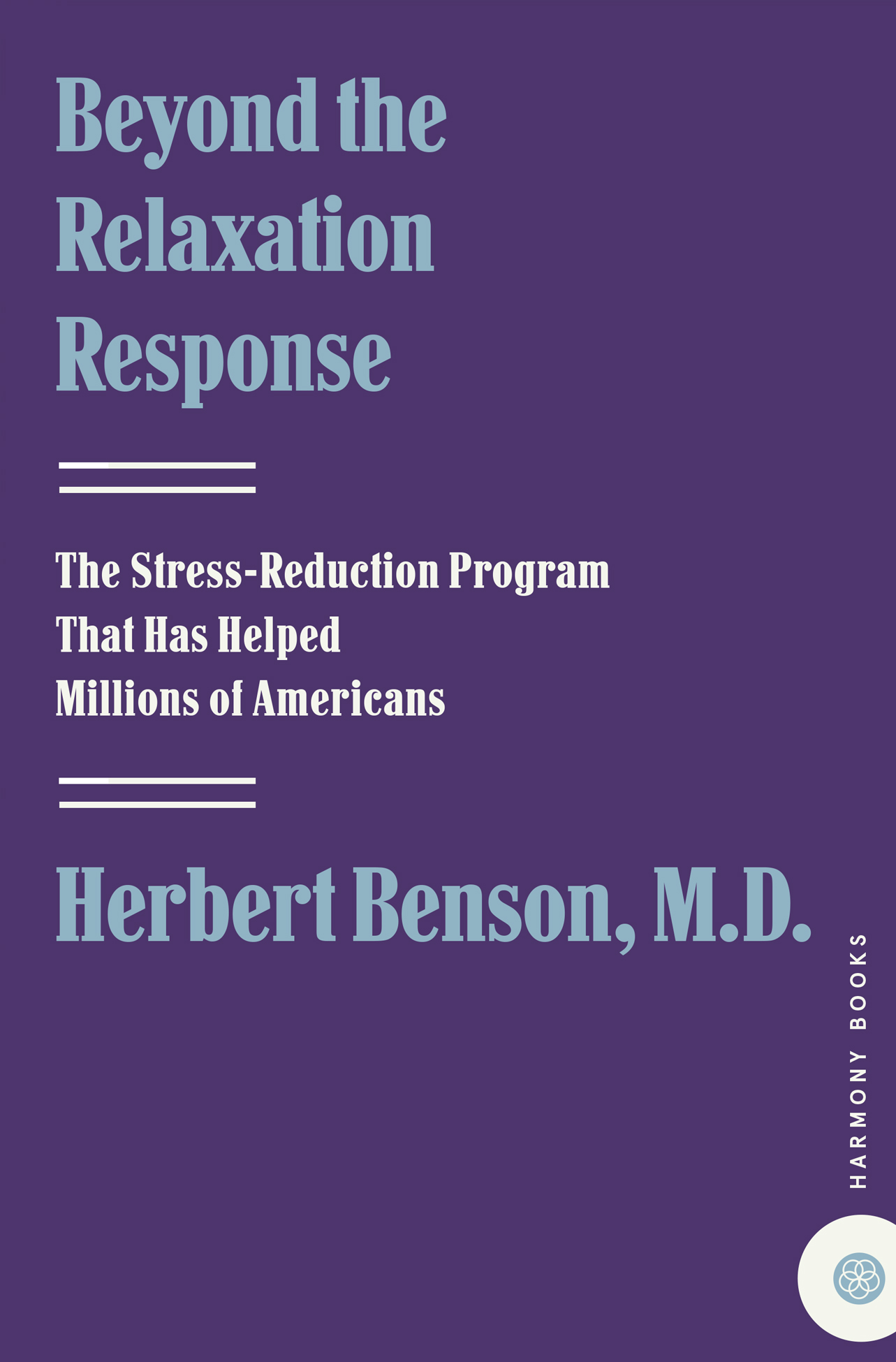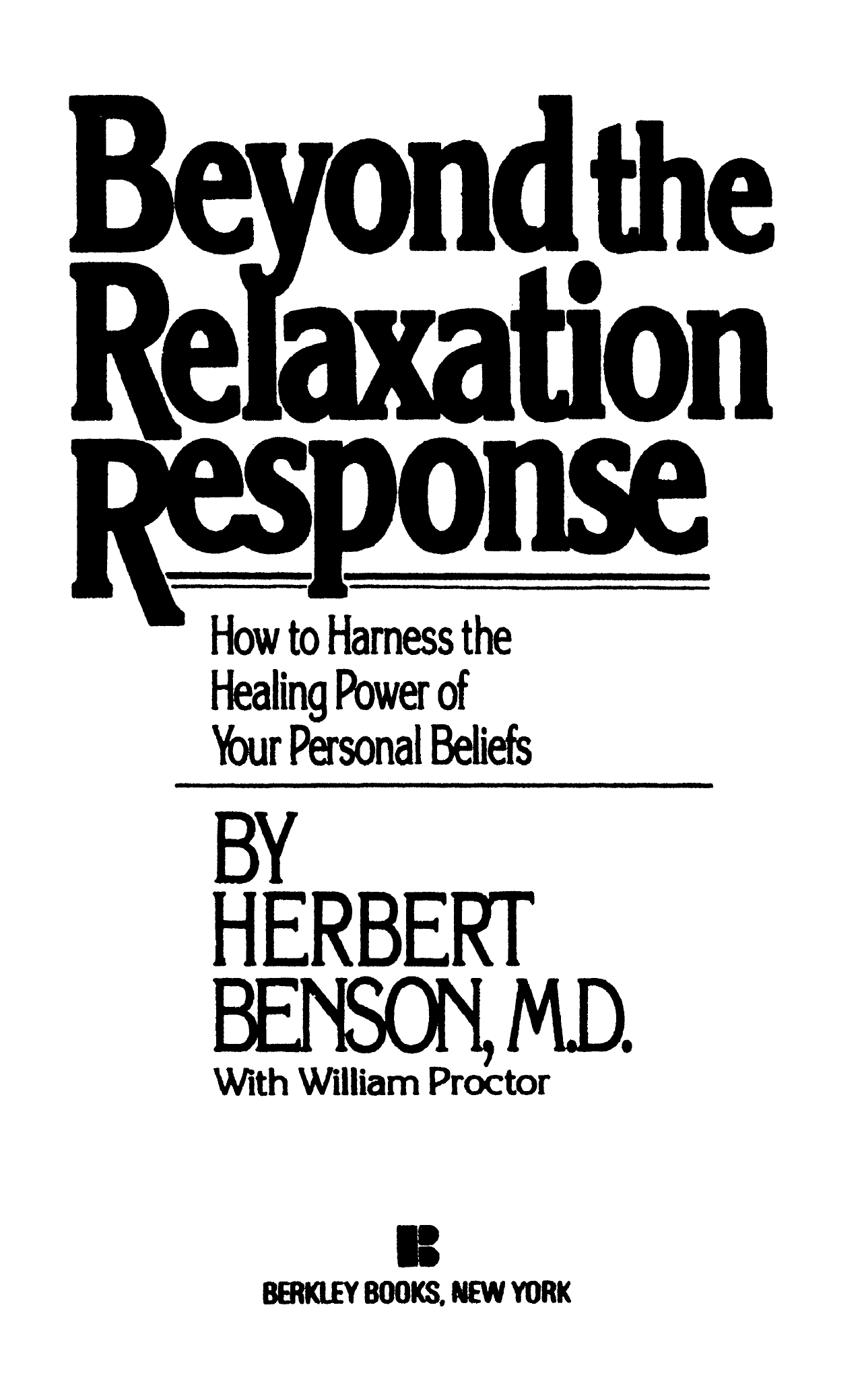Contents
Landmarks
Print Page List
Beyond the Relaxation Response prescribes a more powerful way of healing than any antibiotic, any vitamin, any specialists approach that I know of.
David Kwing, Managing Editor, Harvard Business Review
Its all thereDr. Benson makes it easy and practical.
Frank Field, Science Editor WNBC-TV
THE BERKLEY PUBLISHING GROUP
Published by the Penguin Group
Penguin Group (USA) Inc.
375 Hudson Street, New York, New York 10014, USA
Penguin Group (Canada), 90 Eglinton Avenue East, Suite 700, Toronto, Ontario M4P 2Y3, Canada (a division of Pearson Penguin Canada Inc.)
Penguin Books Ltd., 80 Strand, London WC2R 0RL, England
Penguin Group Ireland, 25 St. Stephens Green, Dublin 2, Ireland (a division of Penguin Books Ltd.)
Penguin Group (Australia), 250 Camberwell Road, Camberwell, Victoria 3124, Australia (a division of Pearson Australia Group Pty. Ltd.)
Penguin Books India Pvt. Ltd., 11 Community Centre, Panchsheel Park, New Delhi110 017, India
Penguin Group (NZ), Cnr. Airborne and Rosedale Roads, Albany, Auckland 1310, New Zealand (a division of Pearson New Zealand Ltd.)
Penguin Books (South Africa) (Pty.) Ltd., 24 Sturdee Avenue, Rosebank, Johannesburg 2196, South Africa
Penguin Books Ltd., Registered Offices: 80 Strand, London WC2R 0RL, England
Neither the publisher nor the author is engaged in rendering professional advice or service to the individual reader. The ideas, procedures, and suggestions contained in this book are not intended as a substitute for consulting with your physician. All matters regarding your health require medical supervision. Neither the author nor the publisher shall be liable or responsible for any loss or damage allegedly arising from any information or suggestion in this book.
BEYOND THE RELAXATION RESPONSE
A Berkley Book / published by arrangement with Times Books
PRINTING HISTORY
Times Books edition published 1984
Berkley mass-market edition / September 1985
Copyright 1984 by Times Books.
All rights reserved.
No part of this book may be reproduced, scanned, or distributed in any printed or electronic form without permission. Please do not participate in or encourage piracy of copyrighted materials in violation of the authors rights. Purchase only authorized editions.
For information, address: Times Books,
175 Fifth Avenue, New York, New York 10010.
ISBN9780425081839
Ebook ISBN9780593137710
BERKLEY
Berkley Books are published by The Berkley Publishing Group,
a division of Penguin Group (USA) Inc.,
375 Hudson Street, New York, New York 10014.
BERKLEY is a registered trademark of Penguin Group (USA) Inc.
The B design is a trademark belonging to Penguin Group (USA) Inc.
Harmony Books is a registered trademark, and the Circle colophon is a trademark of Penguin Random House LLC.
v5.4
a
To Mother

Foreword

Since the writing of The Relaxation Response and The Mind/Body Effect, I have seen how the principles and practices presented in each can be combined successfully to bring about better health and well-being. The Relaxation Response when coupled with the power of belief can lead to remarkable health-promoting elements, which I have identified throughout as the Faith Factor. This new understanding has led to the publication of Beyond the Relaxation Response.
My work stands upon the shoulders of many observers and investigators who have contributed to the literature concerned with health and disease and with religion and belief. I have acknowledged their contributions when possible in the text and in the bibliography. In the text, case histories are presented. They are from either the medical literature or my own practice. My cases have all been altered so as to disguise the identity of the individual patients.
This book is not intended to give specific medical advice concerning personal health care. If the reader decides to use the principles of the book for the purpose of treating a specific medical problem, he or she should do so with the approval and subsequent supervision of his or her physician.
To avoid awkward sentence structures, the male gender has been used in most instances. I hope this does not offend.
I am very grateful to Claudia Dorrington, Nancy E. MacKinnon, Todd Moore, and Irene L. Goodale for their superb assistance in the preparation of this book. I also acknowledge the contributions of Jennifer C. Yolles, who indirectly aided this book by working on a related research project. For their counsel, I thank David M. Roseman, Robert E. Cowden, III, and Robert L. Allen. Once again, I am ever indebted to my wife, Marilyn, for her continued sound judgments, support, and patience.
Aspects of the book were made possible through funds given by The Ruth Mott Fund, the John E. Fetzer Foundation, William K. Coors, and the John D. and Catherine T. MacArthur Foundation. I also gratefully acknowledge the financial support given in honor of Pasquale and Lucy Pepe. The research and development of the book were also funded, in part, by grants from the United States Public Health Service (HL-22727 and HL-07374); from the National Science Foundation (NSF INT 8016982); and from the American Institute of Indian Studies.
Herbert Benson, M.D.
December 1983
CONTENTS
PART ONE
A N I NTRODUCTION TO THE P OWER OF THE F AITH F ACTOR

What is the Faith Factor?

When the film Lawrence of Arabia, the desert classic starring Peter OToole, came out a number of years ago, there were reports that concession stands were inundated at intermissions with demands for drinksdespite the fact that many of the theaters were air-conditioned or in cool climates. A veritable epidemic of thirst hit many moviegoers as they became immersed in the hot, sandy story they were viewing on the screen.
The moral of this incidentand one of the major themes of this bookis that the influential and even life-changing forces we encounter are often not those things that are externally real. In the case of Lawrence, of course, people werent really deprived of water, but they identified with those waterless conditions so thoroughly that their bodies became convinced they were on the Arabian dunes. The result: an overwhelming sense of thirst.
Medical and scientific research is demonstrating ever more clearly that the things we can touch, taste, and measure may frequently have to take a backseat to what we

